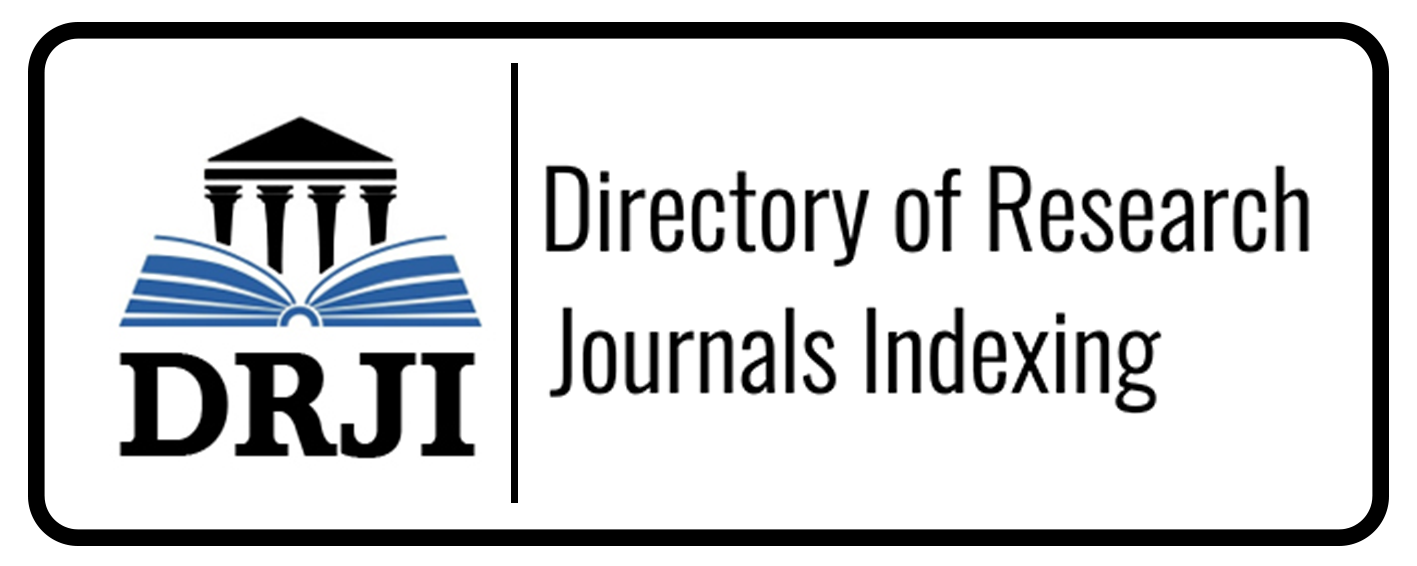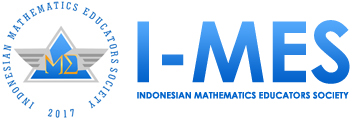Development Male Students’ Skills in Solving HOTS Problem in Terms of Self Confidence
Abstract
Higher Order Thinking Skills (HOTS) type math problems are one way to develop students' higher order thinking skills. One aspect that affects problem solving ability is self confidence. Therefore, this study will describe the development of students' problem solving skills in terms of self confidence. This research is descriptive qualitative type with six male students as the subjects. At the initial stage, a questionnaire was given to determine the level of students' self-confidence. Then two subjects at each level were selected to take the problem solving ability test. As a triangulation, semi-structured interviews were conducted. The test and interview results were analyzed using the Miles and Hubberman model by adjusting to the problem solving steps, namely: understanding the problem, determining the solution plan, implementing the solution plan, and checking back. The results showed that subjects with high self confidence were able to develop problem solving skills, subjects with moderate self confidence only fulfilled the steps of understanding the problem and developing a solution plan, while subjects with low self confidence were only able to understand the problem. Thus, students with self confidence are better at developing problem solving skills, so it is important for educators to help students develop their self confidence through appropriate teaching methods, such as providing constructive feedback and providing opportunities for students to actively participate in the teaching and learning process.
Downloads
References
Agustina, W., & Noor, F. (2016). Hubungan hasil belajar dan tingkat berpikir kreatif siswa dalam pembelajaran matematika. Math Didactic: Jurnal Pendidikan Matematika, 2(3), 191-200.
Aini, A. N. (2017). Peran Keterampilan Berpikir Kreatif dalam Pemecahan Masalah Matematika. Prosiding, 38.
Aini, A. N., Mukhlis, M., Annizar, A. M., Jakaria, M. H. D., & Septiadi, D. D. (2020, February). Creative thinking level of visual-spatial students on geometry HOTS problems. In Journal of Physics: Conference Series (Vol. 1465, No. 1, p. 012054). IOP Publishing. DOI 10.1088/1742-6596/1465/1/012054
Aini, A. N., Sunardi, S., Slamin, S., & Hobri, H. (2017). Student’s Mathematics Creative Thinking Skills in Terms of Logical Mathematical Intelligence. International Journal of Scientific Research and Management (IJSRM), 09 (2) p. 6930-6934. DOI: 10.18535/ijsrm/v5i9.01
Aini, N. N., & Mukhlis, M. (2020). Analisis kemampuan pemecahan masalah pada soal cerita matematika berdasarkan teori Polya ditinjau dari Adversity Quotient. Alifmatika: Jurnal Pendidikan Dan Pembelajaran Matematika, 2(1), 105-128. 10.35316/alifmatika.2020.v2i1.105-128
Aisyah, P. N., Nurani, N., Akbar, P., & Yuliani, A. (2018). Analisis hubungan kemampuan pemecahan masalah matematis dan self confidence siswa SMP. Journal on Education, 1(1), 58-65. https://doi.org/10.31004/joe.v1i1.11
Andayani, M., & Amir, Z. (2019). Membangun Self confidence siswa melalui pembelajaran matematika. Desimal: Jurnal Matematika, 2(2), 147-153.
Astutiani, R., & Isnarto, I. (2021). Problem Solving Ability Considered by Self Confidence in Digital Media Assisted Online Learning. Kreano, Jurnal Matematika Kreatif-Inovatif, 12(2), 323-334. https://doi.org/10.15294/kreano.v12i2.30828
Beddu, S. (2019). Implementasi pembelajaran higher order thinking skills (HOTS) terhadap hasil belajar peserta didik. Jurnal Pemikiran Dan Pengembangan Pembelajaran, 1(3), 71-84.
Çiftçi, S. K., & Yildiz, P. (2019). The Effect of Self confidence on Mathematics Achievement: The Metaanalysis of Trends in International Mathematics and Science Study (TIMSS). International Journal of Instruction, 12(2), 683-694.
Fauziah, R., Maya, R., & Fitrianna, A. Y. (2018). Hubungan self confidence terhadap kemampuan pemecahan masalah matematis siswa SMP. JPMI (Jurnal Pembelajaran Matematika Inovatif), 1(5), 881-886. http://dx.doi.org/10.22460/jpmi.v1i5.p881-886
Gradini, E. (2019). Menilik konsep kemampuan berpikir tingkat tinggi (higher order thinking skills) dalam pembelajaran matematika. Numeracy, 6(2), 189-203.
https://doi.org/10.24042/djm.v2i2.4279
https://repositori.kemdikbud.go.id/18343/1/PENULISAN%20SOAL%20HOTS%202019.pdf
Handican, R., & Gunawan, R. G. (2022). Systematic Literature Review: Analisis Kemampuan Representasi Matematis Siswa Terhadap Gaya Belajar. Griya Journal of Mathematics Education and Application, 2(3), 577-588.
Handican, R., Hayat, A. P., & Mudjiran, M. (2022). Gaya Belajar Visual: Bagaimana Kesalahannya Dalam Menyelesaikan Masalah Matematika?. Jurnal Pendidikan dan Konseling (JPDK), 4(6), 7020-7030.
Karimah, R. K. N., Kusmayadi, T. A., & Pramudya, I. (2018, April). Analysis of difficulties in mathematics learning on students with guardian personality type in problem-solving HOTS geometry test. In Journal of Physics: Conference Series (Vol. 1008, No. 1, p. 012076). IOP Publishing. 10.1088/1742-6596/1008/1/012076
Kemendikbud, P. P. P., & Abduh, M. (2019). Panduan penulisan soal HOTS-higher order thinking skills.
Kurniawati, I., Guntur, M., & Sofiasyari, I. (2022). Mathematics Problem-Solving Ability of Elementary School Students in Solving Hots Types of Mathematics Problems. Journal of Education and Learning Mathematics Research (JELMaR), 3(2), 190-196. https://doi.org/10.37303/jelmar.v3i2.91
Misbahudin, I. H. (2013). Analisis data penelitian dengan statistik. Jakarta, Bumi Aksara.
Murniarti, E. (2020). Pengertian, Prinsip, Bentuk Metode Dan Aplikasinya dari Teori Belajar dari Pendekatan Konstruktivisme dan Teori Belajar Person-Centered Carl Rogers.
Purnama, S., Mertika. (2018). Analisis kemampuan pemecahan masalah siswa ditinjau dari self confidence. Journal of educational review and research, 1(2), 59-63.
Putra, H. D., Putri, W. A. S., Fitriana, U., & Andayani, F. (2018). Kemampuan Pemecahan Masalah Matematis dan Self confidence Siswa SMP. SJME (Supremum Journal of Mathematics Education), 2(2), 60-70. https://doi.org/10.35706/sjme.v2i2.1313
Ramdan, Z. M., Veralita, L., Rohaeti, E. E., & Purwasih, R. (2018). Analisis self confidence terhadap kemampuan pemecahan masalah matematis siswa SMK pada materi barisan dan deret. AKSIOMA: Jurnal Program Studi Pendidikan Matematika, 7(2), 171-179.
Rusliah, N., Handican, R., Deswita, R., & Oktafia, M. (2021, February). Mathematical problem-solving skills on relation and function through Model-Eliciting Activities (MEAs). In Journal of Physics: Conference Series (Vol. 1778, No. 1, p. 012016). IOP Publishing.
Sofyan, F. A. (2019). Implementasi HOTS pada kurikulum 2013. INVENTA: Jurnal Pendidikan Guru Sekolah Dasar, 3(1), 1-9.
Sugiyono, D. (2013). Metode penelitian pendidikan pendekatan kuantitatif, kualitatif dan R&D.
Ukobizaba, F., Nizeyimana, G., & Mukuka, A. (2021). Assessment Strategies for Enhancing Students' Mathematical Problem-Solving Skills: A Review of Literature. EURASIA Journal of Mathematics, Science and Technology Education, 17(3). https://gurudikdas.kemdikbud.go.id/news/Pengembangan-Pembelajaran-Berorientasi-HOTS
Copyright (c) 2023 Afifah Nur Aini

This work is licensed under a Creative Commons Attribution 4.0 International License.



























 JDIME: Journal of Development and Innovation in Mathematics Education (e-ISSN
JDIME: Journal of Development and Innovation in Mathematics Education (e-ISSN 
